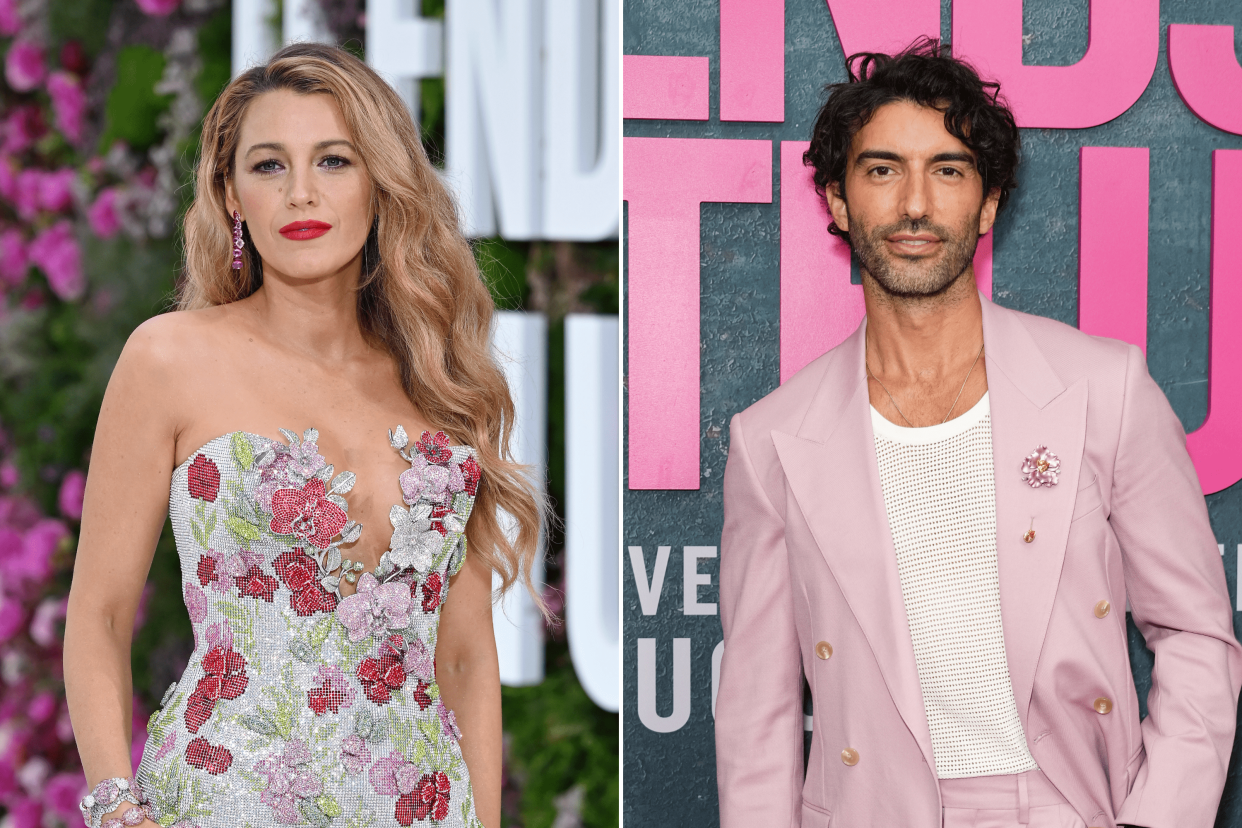Opinion | There is no such thing as the perfect victim


The fallout of the film “It Ends with Us” has been nothing short of messy. Star Blake Lively faced widespread criticism after marketing the film, a story about domestic violence, as a hot pink, flower-power version of feminism. Her use of the press tour as a way to market her haircare line and her husband’s involvement in the movie’s script also garnered backlash. Justin Baldoni, the director and male lead in the film, appeared to have distanced himself from his co-stars in an attempt to sidestep Lively’s surface-level feminism to pivot conversations to more meaningful dialogue on domestic violence. His efforts earned him accolades for his advocacy work and portrayal of the issue in the film, though tension amongst the cast was evident. Lively, Colleen Hoover — who wrote the book that inspired the film — and other members of the ensemble notably unfollowed Baldoni on social media and avoided appearing with him at the premiere and along the press tour. The strained dynamic between Baldoni and Lively became a public spectacle, with many people declaring Lively a “mean girl” as old video clips resurfaced of her being unkind.
But just a few weeks ago, Lively filed a lawsuit against Baldoni accusing him of sexual harassment and leading a public smear campaign of her name. Messages between Baldoni and his PR team were published in the suit implying that the criticism of Lively was orchestrated by Baldoni and his team. Masses of people and fellow celebrities came out of the woodwork to support Lively, including the entire cast of “It Ends with Us.” In response, Baldoni filed a defamation suit against the New York Times, alleging that Lively’s initial claims omitted critical details and painted an incomplete picture of the events.
I do not intend with this column to offer an opinion on the truth of the matter, pass judgment on the events or prescribe what we should all believe in the controversy that resulted from the “It Ends with Us” movie. Instead, my focus is to comment on a nasty trend I witnessed emerge as discourse surrounding the Baldoni-Lively allegations unfolded.
Many people dismissed Blake Lively’s allegations of sexual assault, not by carefully weighing the evidence presented in her suit or by adhering to the principle of “innocent until proven guilty,” but rather because of personal judgments about her character. While we can respect due process and withhold conclusions until all facts are known, much skepticism of Lively’s claims stemmed less from substantive evaluation but rather from the perception that Lively appears to simply not be a very nice person.
As a society, many champion the principle “believe all women” — but not if that woman is unkind, unfriendly and unpleasant to be around.
There is no such thing as a perfect victim. A person doesn’t have to be kind, agreeable or idealized to be a victim. Victimhood is not contingent on personality traits and many times even actions. A victim is allowed to be unkind, unpleasant and unruly and still deserve to have their experiences acknowledged as abuse.
A common defense tactic in rape cases involves portraying the survivor in a way that undermines their credibility and character, as if their behavior somehow justifies assault. While a lawyer might not outright say that the accuser was “asking for it,” they often insinuate it by implying so. In the case of an assault that occurred at a party, a defense attorney might paint the survivor as a party animal, heavy drinker and as someone who sleeps around with lots of people. It is easy to see why this approach perpetuates harmful stereotypes, suggesting that certain behaviors or lifestyles can void a person’s right to consent and safety. A survivor is allowed to drink, be rowdy or engage in consensual sexual relationships — all without forfeiting their right to bodily autonomy and negating the fact that they were assaulted.
Chanel Miller, in her book “Know My Name,” which recounted her experience, life and emotions in the aftermath of her rape, wrote “One of the greatest dangers of victimhood is the singling out; all of your attributes and anecdotes assigned blame. In court, they’ll try to make you believe you are unlike the others, you are different, an exception. You are dirtier, more stupid, more promiscuous. But it’s a trick. The assault is never personal, the blaming is.” Rather than focusing on the perpetrator’s actions as we should be doing, time and time again, emphasis is shifted to questioning the victim’s character or choices, shifting accountability away from the aggressor.
Many outside the legal field disparage the age-old adage “They were asking for it.” But are many of Lively’s unfounded skeptics not upholding the same principle?
Olivia Hussey, who famously played Juliet in “Romeo and Juliet” in the 1968 film, recently passed away just after this past Christmas. She maintained nearly her whole life that she wasn’t a victim after being filmed nonconsensually in the nude as an underage teenager. The director of the film who chose to portray underage stars in the nude even wrote the foreword in her memoir “The Girl on the Balcony” in 2018. At the time of her memoir, she thought it wasn’t a “big deal.” She changed her mind only a few years later, as she and her co-star Leonard Whiting sued Paramount alleging sexual exploitation, sexual harassment and fraud in 2022.
Just because she realized and came to terms with her assault and exploitation at the age of 71 doesn’t mean she was any less a victim. And taking over 50 years to process the assault doesn’t negate her victimhood either. The idea that a survivor must immediately recognize their trauma to be validated only further perpetuates harmful and unrealistic expectations about how people process abuse. Victimhood is not dictated by how long it takes someone to understand what happened to them, but rather by the fact that harm was inflicted in general.
Victims can be, and often are, messy and confused. Victims, like everybody else, are human and have good days and bad days. Many are unkind and unwelcoming and just as many are tender and kind. Being one or the other doesn’t make either more or less a victim. People are complex, and their behaviors or responses to abuse vary widely. A victim’s worth or validity of their experience should never be contingent on their personality or how they react in the wake of what has happened to them. Whether one chooses to believe an accuser outright or wait until a verdict has been made, it is essential that the complexities of the individual be acknowledged, but not at the cost of questioning their victimhood. No one should ever be judged as unworthy of support or understanding based on the traits or actions that do not directly relate to the assault they have endured. It is the assault, not the victim’s behavior or mannerisms, that defines their experience, and it is crucial that society honor that distinction.
Like Miller wrote in her book, “I am a victim, I have no qualms with this word, only with the idea that it is all that I am.”
Livia LaMarca is the assistant editor of the opinions desk who misses using the Oxford comma. She mostly writes about American political discourse, US pop culture and social movements. Write to her at lll60@pitt.edu to share your own opinions!
Recent Posts
Weathering the storm: Pittsburgh teams have tackled some of the toughest environments
The end of the year in western Pennsylvania is always marked by two things —…
Notes From an Average Girl // Notes on Book Banning
In this edition of Notes From an Average Girl, senior staff writer Madeline Milchman writes…
To Be Honest // Yup, it is that damn phone
In this edition of To Be Honest, staff writer Evin Verbrugge writes about her phone…
Meaning at the Movies | Portraying Toxic ‘Adolescence’
In this edition of Meaning at the Movies, staff writer Lauren Deaton explores the mini-series…
Opinion | Climate change requires radical, immediate action
Contributing editor Emma Hannan talks about the effects of climate change and the actions cities…
Jaland Lowe enters transfer portal, becomes fifth Panther to jump ship
On Tuesday morning, it was announced on X that Pitt sophomore guard Jaland Lowe was…

